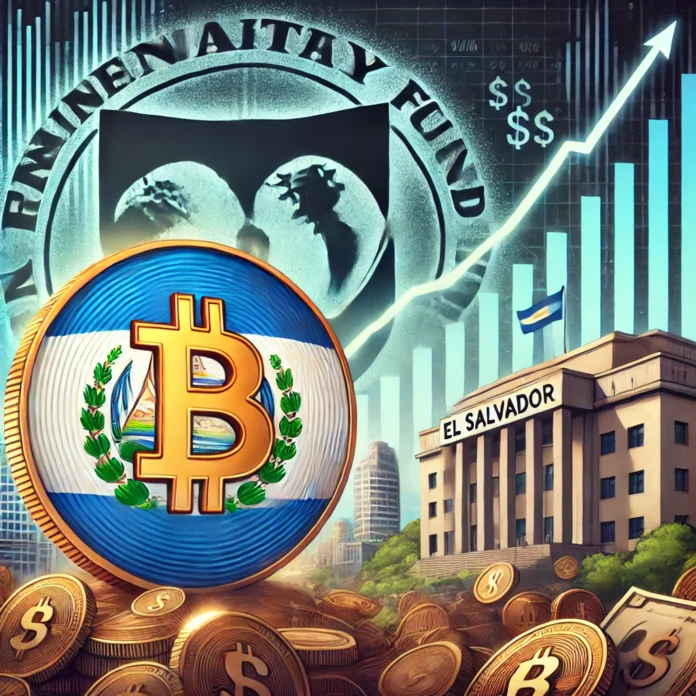El Salvador, once celebrated for its pioneering embrace of Bitcoin as legal tender, is now facing mounting pressure to scale back its cryptocurrency ambitions. Reports indicate that international lenders, including the International Monetary Fund (IMF), have urged the Central American nation to reconsider its Bitcoin strategy as part of negotiations for a multi-billion-dollar loan.
Bitcoin Dreams Meet Economic Reality
In 2021, El Salvador made global headlines by becoming the first country to adopt Bitcoin as legal tender. President Nayib Bukele touted the move as a groundbreaking step towards financial inclusion and economic independence. However, the initiative has faced criticism and scrutiny from economists, global institutions, and even some Salvadorans, who argue that Bitcoin’s volatility poses significant risks to the nation’s already fragile economy.
As El Salvador negotiates a loan deal worth billions of dollars to stabilize its finances, the IMF and other lenders have reportedly set conditions for financial assistance. Among these is a requirement to curtail the country’s Bitcoin-related policies, which international financial bodies view as destabilizing and speculative.
Mounting Challenges for Bitcoin in El Salvador
The Bitcoin experiment has faced several challenges since its inception:
- Market Volatility: Bitcoin’s value has experienced dramatic swings, eroding confidence among local businesses and citizens. Many Salvadorans have chosen to stick with the U.S. dollar, which remains the country’s primary currency.
- Adoption Struggles: Despite government efforts, including the launch of the Chivo Wallet and incentives such as $30 worth of Bitcoin for every user, adoption among the general population has been limited. Surveys suggest that most Salvadorans still prefer cash transactions.
- Debt Concerns: El Salvador’s debt-to-GDP ratio has climbed in recent years, leading to concerns about the country’s fiscal stability. Bitcoin purchases, funded through state-issued bonds, have added to these worries.
- International Relations: The country’s Bitcoin stance has strained relationships with international financial institutions, complicating access to much-needed funding.
Bitcoin City and Bonds Under Threat
One of the key components of El Salvador’s Bitcoin vision has been the creation of a “Bitcoin City” — a tax-free, cryptocurrency-powered hub funded by Bitcoin bonds. However, progress on the ambitious project has been slow, and the IMF has expressed skepticism about its feasibility.
Critics argue that the resources devoted to Bitcoin City and related initiatives could be better spent addressing the country’s pressing issues, such as poverty, unemployment, and infrastructure development.
Scaling Back Without Abandoning
While international lenders are pressing for changes, scaling back does not necessarily mean abandoning Bitcoin altogether. Analysts suggest that El Salvador could adopt a more cautious approach, integrating Bitcoin in a way that minimizes risks to the broader economy. For instance, rather than relying on Bitcoin as legal tender, the government could focus on using blockchain technology to improve transparency and efficiency in public administration.
What’s Next for El Salvador?
President Bukele’s government faces a tough balancing act: securing international financial assistance while maintaining its commitment to Bitcoin as a symbol of national sovereignty and innovation. Whether El Salvador can reconcile these goals remains to be seen, but one thing is clear: the country’s Bitcoin experiment will continue to be closely watched by the world.





